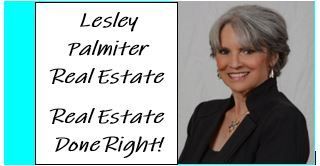Many Boston residents left reeling at new tax bills
New tax bills leave many Boston residents reeling.

January tax bills have gone out in the city of Boston and they've left many residents reeling. It's my estimation that this will create an unfortunate new shift in home ownership, with many elderly residents choosing to move on, when and where they can.
‘Lord help me... I can’t afford it.’ Jan. property tax bills leave some Boston homeowners reeling.
By Niki Griswold Globe Staff, Updated January 9, 2025
Betty McGuire has lived in her Dorchester house for nearly 60 years. She now worries about how she will afford to stay in her home after receiving her January property tax bill, which included a close to 45 percent increase from her previous quarter bill.
Betty McGuire has lived in her Dorchester triple-decker for nearly 60 years. It’s where she and her husband raised their nine children and watched their family grow to include 19 grandchildren and seven great-grandchildren.
“I want to be able to leave it” to them, McGuire, 80, said. “We’ve been here all our life. The kids have all grown up here.”
But as Boston’s cost of living continues to climb, staying in her home feels increasingly challenging. When her latest property tax bill landed in her mailbox at the start of the month, her concern intensified. It was about $260 higher than her previous quarter bill, a 44.5 percent increase from her last bill in October — far more than she expected.
“‘Lord, help me to make it,’ that’s all I was thinking about,” she said. “I can’t afford it, but I don’t know what to do.”
McGuire isn’t the only Boston resident feeling the pinch this month, as homeowners and other residential property owners across the city open their January property tax bills. These are the first bills issued since Mayor Michelle Wu failed to convince state lawmakers to grant her the power to temporarily shift more of the city’s tax burden onto commercial real estate. Wu’s goal was to soften the blow for residents like McGuire. The state Senate rejected Wu’s proposal last month after final city numbers showed homeowners would face lower increases than Wu’s administration initially projected.
Now, Boston residents are seeing the result of that political wrangling, printed right there on their third-quarter tax bills.
For retired seniors such as McGuire, living on fixed incomes, the higher tax bills hit particularly hard. She is set to pay about $535 more in property taxes this year than she did the previous year, around a 22.7 percent year-over-year increase.
McGuire’s resources are already spread thin. Since her husband died in 2008, she’s survived on her Social Security check and rent payments from tenants. Several of her family members live in the four bedrooms on her second floor, and three elderly residents rent out the third. But she doesn’t charge any of them close to market rent; they can’t afford it.
“What am I gonna do, throw them on the street?” she said. ”I believe in helping people. They all came, asked ... could they live here because they had no place to go. And I said, ‘Yes.’”
Altogether, she has barely enough to pay her mortgage and bills every month, McGuire said. There’s rarely any money left over, let alone enough to pay her higher property tax bill. “I’m wondering what I’m going to do,” she said.
She’s not alone.
Paulette Durrett, a 76-year-old retiree, said she was “shocked” when she saw her January tax bill for the Mattapan home she’s owned since 1983: It was more than double what she paid in the previous quarter.
Her taxes went up by more than $223, or a 133 percent increase from her October bill. She will be paying an additional $447 in taxes this fiscal year, 66 percent more than last year.
She’s determined to stay in her home, but whether she’ll be able to worries her.
“I’m more concerned than I was before, because I was starting to think that the increase would only be 10 percent or 30 percent at the most,” Durrett said, adding that she’s trying to cut back on her heat bill and other expenses to compensate. “But, quite frankly, I’m 76. Where am I going, right? I’m a Bostonian. ... This is my home.”
Sherry Peterson’s January tax bill is almost $500 higher than her October bill, a 40 percent increase. That translates to nearly $1,000 more the 76-year-old Mattapan homeowner expects to pay this fiscal year in property taxes compared with last year, a 20 percent jump.
“Every year it gets more expensive to keep living here. Who can afford these increases?” Peterson said.
Not all homeowners experienced dramatic spikes in their taxes this month. But for some, even smaller increases can hurt.
Adonica Chaplain, 78, relies on her pension and Social Security checks to make ends meet and said she is already struggling to pay for rising home insurance, utilities, and grocery costs.
Her January property tax bill for her Hyde Park home was nearly 13 percent higher than her previous quarter bill, and she is set to pay about $152, or 6.4 percent, more in property taxes this fiscal year, according to property tax records. That amount still feels like a stretch for Chaplain, given her fixed income.
“We’re living paycheck to paycheck,” Chaplain said. “You just do what you have to do ... [but] any increase makes it tough.”
McGuire, Durrett, Peterson, and Chaplain are all part of the grassroots advocacy group Massachusetts Senior Action Council, which spent months lobbying lawmakers on the City Council and Beacon Hill to support Wu’s legislation. The seniors argued the measure was essential to help shield them and other vulnerable residents from sharp property tax increases. State Senate lawmakers, including Senator Nick Collins of South Boston, ultimately killed the proposal, pointing to final data that showed the coming tax spike for residents was not going to be as severe as the city had previously projected.
The Senate’s argument rings hollow to 65-year-old Roslindale resident Tony LaCasse. LaCasse followed the debate over Wu’s tax proposal as it played out on Beacon Hill and said at the time he was sympathetic to Wu critics, including opponents in the Senate, who warned the proposal could hurt the business sector, even as he understood Wu’s desire to help residents. He also understood that, thanks to a large commercial tax base and a high residential exemption, Boston homeowners pay lower property tax bills than residents in many surrounding towns. So he thought a moderate tax increase would be acceptable.
But he was “flabbergasted and puzzled,” he said, when he opened his January tax bill, containing a 68 percent increase over the previous quarter’s bill. While he said he can afford the $270 quarterly increase, many others can’t, he said.
“After the bill failed to pass the state Senate, there was a lot of finger-pointing at the city, over saying that they provided inaccurate numbers and overstated their case, and that doesn’t appear to be the case, in terms of my experience just opening up this tax bill,” LaCasse said.
Ultimately, he said he blames state senators for his higher taxes, as well as the state’s home rule petition system, in which municipalities have to get state approval to change a wide variety of local laws — a legal structure most other major US cities do not face.
“A lot of [the city’s] day-to-day business is subject to legislative oversight, and in many cases, never gets acted on,” he added. “That’s not good government.”
Collins said in a statement that “residents need relief” but Wu’s proposal was the wrong mechanism to provide that help. He encouraged residents to apply for a tax abatement and pushed the city to use its participatory budgeting surplus to provide support to vulnerable homeowners.
City spokesperson Emma Pettit said in a statement that while the average single-family home’s property taxes went up by 10.4 percent in January, that “masks” the full range of tax increases residents are experiencing. She pointed to an online tax calculator residents can use to see how much the mayor’s proposal would have lowered their property tax bills this quarter.
The 10.4 percent annual figure was based on a single-family, owner-occupied home valued at $838,000 in fiscal 2024, which saw a 4 percent increase in value this fiscal year. Individual property owners will see tax increases that are bigger or smaller than that 10.4 percent figure, depending on how much their specific property changed in value. Also, since the city is halfway through its fiscal year, that annual increase is being stuffed into two quarters, rather than four.
McGuire, while stressed and frustrated, said she is unsure about whom to blame for her higher bill.
“But I know that the Legislature and the councilmen and all those [elected officials] could run their job better by considering who these increases hurt most,” she said. “I pray that it doesn’t put a lot of seniors out of their homes.”
Andrew Brinker of the Globe staff contributed to this report.





